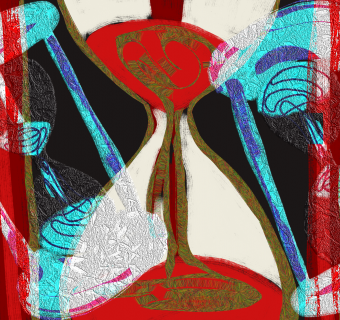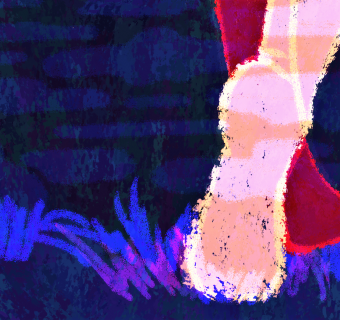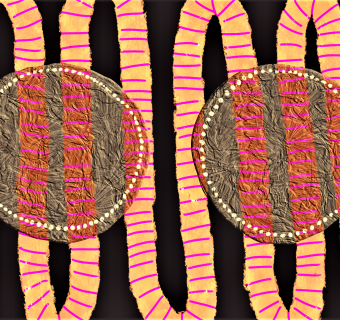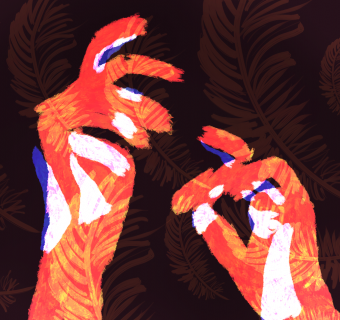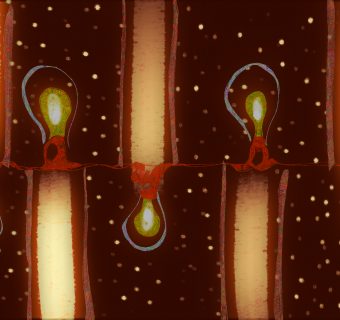Camille Kidwell
As time has passed and society has shifted, the twenties have become an age of relaxation, curiosity and adventure. Our culture has created a new norm, deeming the twenties as a period of “finding yourself,” “trying new things” and “not taking life too seriously.” Meg Jay, a local psychologist, clinical assistant professor at U.Va. and author of: The Defining Decade: Why Your Twenties Matter-And How to Make the Most of Them Now, argues against the cultural norm; deeming that these years are the crux of adulthood and the most important time in a young person’s life. Dr. Jay’s message has inspired the masses, with hosting her own Ted Talk in February 2013, a few months after her book was published in April. Her discussion, with more than 6 million views, details how a twentysomething, at any age in this decade, can reshape their life during such a formative period of growth.
According to Jay’s Ted Talk: “I specialize in ‘twentysomethings’ because I believe that every single one of those 50 million twentysomethings deserves to know: that claiming your twenties is one of the simplest, yet most transformative, things you can do for work, for love, for your happiness, maybe even for the world. This is not my opinion. These are the facts.”
Jay bases her knowledge off of lengthy research, proving that more than 80 percent of life’s most defining moments take place before the age of 35. As an alumna and a professor of the University, Jay was gracious enough to answer a few questions about her book, how working with U.Va. students has influenced her and what our graduates need to know most. Camille Kidwell: What has living in Charlottesville been like? Do you enjoy having your practice in this town? Meg Jay: This is my third time living in Charlottesville, and I have loved living here for different reasons each time. As an undergraduate, the Grounds gave me a sense of peace and beauty that made me feel safe. I used to leave my apartment to nap in Clemons Library or in the Pavilion gardens. Then, after many years in California, I was married at the Colonnade Club on Grounds and I did my residency here, and I had a fun year living downtown with my husband. A few years after that, I moved here--for good this time--with my husband and two children, and now we live on Rugby Road.
I love having a practice here. Many of my clients are U.Va. students and working with such smart, "with it" twentysomethings is a privilege. Of course, even smart students may not have it "all figured out" but the potential there, in terms of where they can take their twenties, is a real motivator for me. And, between being an alum and having worked at U.Va. CAPS, I know their world quite well, which is helpful on both sides.
 CK: What inspired you to write The Defining Decade? MJ: My private practice and the classes I taught were overflowing with college students and twentysomethings who were desperately seeking some real information and a real conversation about how to make the best use of the modern twenties. And, as you can tell from the thesis of my book, I felt strongly that twentysomethings were being misled and trivialized by popular culture. They were being lulled into thinking that, because more young adults "settle down" and reach the classic adult milestones of marriage and children and career clarity a bit later than in the past, their twenties did not matter anymore. Nothing could be further from the truth. CK: Has working at U.Va. influenced your theory? MJ: Working at U.Va. helped my book tremendously. I moved to Charlottesville (for that third time) when I had just begun working on The Defining Decade. I had lived in San Francisco for many years, and there it really is the norm to postpone adulthood as long as possible. Then, I moved back to Charlottesville and I was surrounded by smart, ambitious U.Va. students who absolutely wanted help moving forward. It reminded me that twentysomethings are a diverse group and that popular culture was not speaking to a giant swath of the young adult population--those who were not interested in being played small. CK: Do you believe U.Va. students take this advice? Are we capitalizing on our years as twentysomethings? MJ: U.Va. students are a diverse group--more diverse than they appear to be. Some are capitalizing on their college years and some are not… They worry about getting As or having a double major; or they worry about having fun with friends while they can. All of these things are fine and well, but be careful not to overlook what will help you thrive in the years after college as well:
CK: What inspired you to write The Defining Decade? MJ: My private practice and the classes I taught were overflowing with college students and twentysomethings who were desperately seeking some real information and a real conversation about how to make the best use of the modern twenties. And, as you can tell from the thesis of my book, I felt strongly that twentysomethings were being misled and trivialized by popular culture. They were being lulled into thinking that, because more young adults "settle down" and reach the classic adult milestones of marriage and children and career clarity a bit later than in the past, their twenties did not matter anymore. Nothing could be further from the truth. CK: Has working at U.Va. influenced your theory? MJ: Working at U.Va. helped my book tremendously. I moved to Charlottesville (for that third time) when I had just begun working on The Defining Decade. I had lived in San Francisco for many years, and there it really is the norm to postpone adulthood as long as possible. Then, I moved back to Charlottesville and I was surrounded by smart, ambitious U.Va. students who absolutely wanted help moving forward. It reminded me that twentysomethings are a diverse group and that popular culture was not speaking to a giant swath of the young adult population--those who were not interested in being played small. CK: Do you believe U.Va. students take this advice? Are we capitalizing on our years as twentysomethings? MJ: U.Va. students are a diverse group--more diverse than they appear to be. Some are capitalizing on their college years and some are not… They worry about getting As or having a double major; or they worry about having fun with friends while they can. All of these things are fine and well, but be careful not to overlook what will help you thrive in the years after college as well:
- Every U.Va. student should leave with at least one professor or dean who would be willing to write them a letter of recommendation.
- Every U.Va. student should leave school with at least some professional work experience, such as an internship or a summer job in the field you may enter.
“The clock is ticking for us all--in different ways at every age--and my book is really about a basic human problem: how to make the most of your limited time on earth and, more specifically, how to maximize your twenties so that one day you feel that you have.”


